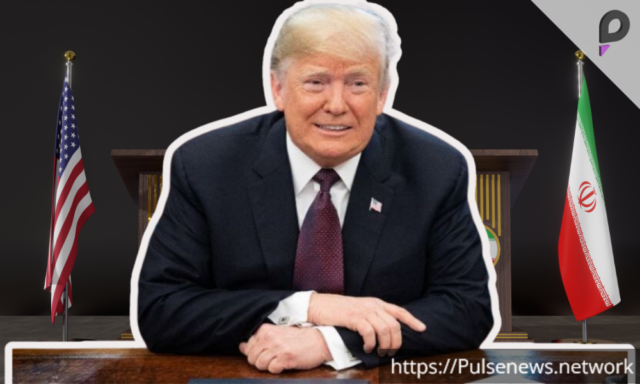Washington, D.C.: U.S. President Donald Trump has expressed his preference for a diplomatic solution with Iran rather than military action. He stated on Wednesday that he favors a “verified nuclear peace agreement” to prevent Iran from developing nuclear weapons.
Trump’s Stance on Iran
Trump has consistently taken a tough stance on Iran. On Tuesday, he signed a directive aimed at stopping Tehran from acquiring nuclear weapons. The document also included a warning of “obliteration” if Iranian operatives attempted to assassinate him.
Despite this aggressive approach, Trump took to Truth Social on Wednesday to clarify his position. He wrote:
“I want Iran to be a great and successful country, but one that cannot have a nuclear weapon. Reports that the United States, working in conjunction with Israel, is going to blow Iran into smithereens are GREATLY EXAGGERATED.”
Push for Diplomacy
Trump emphasized that he prefers diplomacy over military confrontation. He stated his willingness to work on a “verified nuclear peace agreement” that would allow Iran to develop peacefully. He proposed a Middle East Celebration once the deal is finalized.
“We should start working on it immediately, and have a big Middle East Celebration when it is signed and completed. God Bless the Middle East!”
Reluctant Signing of the Memorandum
While Trump has shown openness to negotiations, he admitted that he was reluctant to sign the latest directive against Iran. He acknowledged the importance of “being strong and firm” but expressed hope for a peaceful resolution.
“We will see whether or not we can arrange or work out a deal with Iran… Maybe that’s possible and maybe it’s not possible. I’m signing this, and I’m unhappy to do it, but I really have no choice.”
Conclusion
Trump’s remarks signal a mixed approach—a combination of strong deterrence and diplomatic engagement. His call for a “verified nuclear peace agreement” suggests that he sees an opportunity for negotiations. Whether Iran responds positively remains to be seen, but his comments have reignited discussions about the future of U.S.-Iran relations.











